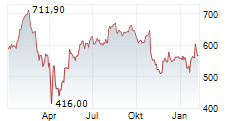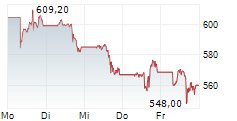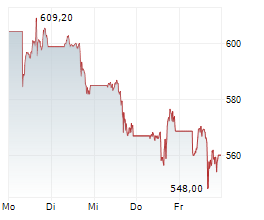The "United Kingdom Social Commerce Market Intelligence and Future Growth Dynamics Databook 50+ KPIs on Social Commerce Trends by End-Use Sectors, Operational KPIs, Retail Product Dynamics, and Consumer Demographics Q2 2025 Update" report has been added to ResearchAndMarkets.com's offering.
The social commerce market in United Kingdom is expected to grow by 22.7% on annual basis to reach US$49.21 billion in 2025.
The social commerce market experienced robust growth during 2021-2024, achieving a CAGR of 27.5%. This upward trajectory is expected to continue, with the market forecast to grow at a CAGR of 16.2% during 2025-2030. By the end of 2030, the social commerce sector is projected to expand from its 2024 value of USD 40.12 billion to approximately USD 104.44 billion.
This report provides a detailed data-centric analysis of the social commerce sector in United Kingdom, covering market opportunities and risks across a range of retail categories. With over 50+ KPIs at the country level, this report provides a comprehensive understanding of social commerce market dynamics, market size and forecast, and market share statistics.
Key Insights
The UK's social commerce sector is undergoing rapid transformation, driven by integrating e-commerce features into social media platforms, live commerce, and the increasing role of influencers in driving consumer purchases. Businesses are leveraging social platforms for engagement and as primary sales channels, with TikTok Shop, Instagram, and Facebook leading this shift. The emphasis on mobile-friendly transactions and integrated payment solutions makes the shopping experience seamless, further accelerating consumer adoption. As social commerce becomes more ingrained in the UK's retail ecosystem, competition among platforms and brands will intensify, requiring businesses to refine their strategies to stay relevant.
Over the next 2-4 years, these trends will continue to shape consumer behavior, making authenticity and personalization critical for brand success. The expectation for interactive and engaging shopping experiences will drive further investment in live commerce and influencer marketing. At the same time, secure and frictionless payment systems will enhance consumer confidence in social transactions.
Competitive Landscape and Regulatory Developments in the United Kingdom's Social Commerce Market
The UK's social commerce landscape is evolving rapidly, with significant growth and increasing competitive intensity. Established platforms and new entrants are innovating to capture market share, while regulatory frameworks are adapting to ensure fair competition and consumer protection.
Over the next few years, businesses operating in this space must navigate a dynamic environment, balancing the adoption of new technologies and strategies with compliance with evolving regulations to succeed in the burgeoning social commerce market.
Integration of E-commerce Features into Social Media Platforms
- Social media platforms in the UK increasingly incorporate e-commerce functionalities, enabling users to purchase products directly within these applications. For instance, Instagram and Facebook have introduced shopping features that allow businesses to showcase products and facilitate in-app purchases. Additionally, TikTok has launched TikTok Shop, allowing users to buy products during live broadcasts.
- The widespread adoption of smartphones and high social media engagement among UK consumers are primary drivers. Businesses are leveraging these platforms to reach a broader audience, utilizing the seamless integration of social interaction and shopping to enhance customer engagement and drive sales.
- This trend is expected to intensify, with more platforms adopting integrated shopping features and businesses increasingly utilizing social media as primary sales channels. The convenience and personalized shopping experiences offered by these platforms are likely to boost consumer spending, further solidifying social media's role in the UK's e-commerce ecosystem.
Rise of Live Commerce
- Live commerce is becoming essential to the UK's social commerce landscape as brands and influencers use live streaming to create interactive shopping experiences. Businesses can drive consumer engagement and boost sales by showcasing real-time products, answering customer questions, and offering time-sensitive deals. Notable successes, such as P Louise generating $2 million in sales within 12 hours on TikTok Live, highlight the growing impact of this format on digital retail.
- The increasing popularity of live commerce is largely driven by UK consumers' preference for interactive and immediate shopping experiences. Early adopters in the beauty, fashion, and electronics sectors have demonstrated the effectiveness of live shopping in converting viewers into buyers. As platforms such as TikTok and Instagram optimize their live-streaming capabilities, more businesses are expected to integrate this strategy into their sales approach.
- Over the next 2-4 years, live commerce is set to become a mainstream retail channel in the UK. As consumer expectations evolve, brands must enhance their live shopping experiences with better production quality, influencer collaborations, and immersive technologies such as augmented reality (AR). With competition in this space intensifying, businesses that invest in innovative live-streaming techniques and seamless checkout options will be best positioned to capitalize on this growing trend.
Growth of Influencer Partnerships
- Influencer partnerships are becoming a key component of social commerce in the UK, with brands increasingly leveraging social media personalities to drive product sales. Influencers provide a direct and trusted connection to consumers, using their reach to showcase products in a personal and engaging way. The impact of these partnerships is evident, with 69% of UK consumers having purchased after seeing a product promoted by an influencer.
- The rise of influencer marketing is largely driven by consumer trust in digital creators, who are perceived as more authentic than traditional advertising. Many UK shoppers rely on influencers for product recommendations, particularly in the fashion, beauty, and lifestyle sectors. As a result, brands are allocating more budget to influencer collaborations, focusing on high-profile and micro-influencers who engage niche audiences.
- Over the next 2-4 years, influencer partnerships will continue to evolve, with brands adopting data-driven approaches to maximize their effectiveness. The emergence of micro-influencers will allow businesses to target specific demographics with personalized content, enhancing engagement and conversion rates. Additionally, influencer marketing strategies will become more sophisticated, integrating live shopping, AI-powered analytics, and performance-based collaborations to ensure measurable returns on investment.
Adoption of Integrated Payment Solutions
- Integrating seamless payment solutions within social media platforms reshapes social commerce in the UK by making transactions more efficient. Platforms such as TikTok Shop have introduced in-app payment systems that allow users to complete purchases without being redirected to external websites. This streamlined approach enhances the consumer experience, reducing purchasing process friction and increasing business conversion rates.
- The growing reliance on digital payments is driven by consumer demand for speed, security, and convenience in online shopping. Integrated payment systems simplify transactions, making social commerce more appealing by eliminating extra steps that could lead to cart abandonment. As UK shoppers become more accustomed to digital wallets and one-click payments, businesses are pressured to adopt these solutions to stay competitive.
- Over the next 2-4 years, the widespread adoption of integrated payment solutions is expected to become an industry standard. Consumers will increasingly expect frictionless checkout experiences, prompting more businesses to invest in seamless and secure payment technologies. As social commerce continues to grow, platforms that offer quick and reliable payment options will likely see higher engagement and customer retention, further driving sales in the UK market.
Emphasis on Authenticity and Personalization
- UK consumers increasingly seek authenticity and personalized interactions when engaging with brands on social media. Companies such as Innocent have built loyal communities by prioritizing genuine communication and meaningful interactions rather than traditional sales-driven messaging. As social commerce evolves, businesses that foster trust through transparency and relatable content will likely strengthen customer relationships and drive engagement.
- This trend is largely fueled by a growing preference for tailored content that aligns with individual consumer needs and values. UK shoppers are likelier to engage with brands that personalize their messaging, offering product recommendations based on browsing behavior, purchase history, or direct interactions. As a result, businesses are investing in AI-driven personalization tools and consumer insights to enhance their social commerce strategies.
- Over the next 2-4 years, brands emphasizing authenticity and personalization will gain a competitive edge in the UK's social commerce market. Consumers will continue to favor businesses that prioritize genuine connections, pushing companies to refine their content strategies and customer engagement methods. As competition intensifies, brands that successfully integrate authenticity with personalized shopping experiences will likely see higher customer retention and long-term loyalty.
Key Players and New Entrants
- Established platforms such as Facebook, Instagram, and TikTok dominate the UK's social commerce landscape. These platforms offer integrated shopping features that facilitate seamless consumer purchasing experiences, and they have become central hubs for businesses aiming to tap into the growing online market.
- New entrants such as Whatnot also make inroads into the UK market, introducing innovative live-shopping experiences that combine entertainment with commerce. Whatnot's auction-style live streams allow sellers to interact with buyers in real time, enhancing the shopping experience and building community trust.
Outlook
- The competitive intensity in the UK's social commerce market is anticipated to escalate, with sales expected to double as more consumers purchase via social media platforms. Existing players will likely enhance their platforms with advanced features to retain and grow their user bases.
- New entrants are expected to continue emerging, bringing innovative solutions and targeting specific consumer segments. Strategic partnerships and potential mergers or acquisitions may reshape the market structure as companies seek to consolidate resources and expand their capabilities to stay competitive.
Regulatory Changes
- The UK government has introduced the Digital Markets, Competition and Consumers Act 2024 to regulate competition in digital markets and enhance consumer protection. This legislation addresses unfair practices and promotes fair competition among digital platforms.
- Additionally, the Competition and Markets Authority (CMA) has been granted increased powers to enforce consumer protection laws, ensuring that businesses comply with regulations designed to protect consumers in the digital marketplace.
Companies Featured
- LOOKK
- Depop
- AGORA
For more information about this report visit https://www.researchandmarkets.com/r/edkhz9
About ResearchAndMarkets.com
ResearchAndMarkets.com is the world's leading source for international market research reports and market data. We provide you with the latest data on international and regional markets, key industries, the top companies, new products and the latest trends.
View source version on businesswire.com: https://www.businesswire.com/news/home/20250509759072/en/
Contacts:
ResearchAndMarkets.com
Laura Wood, Senior Press Manager
press@researchandmarkets.com
For E.S.T Office Hours Call 1-917-300-0470
For U.S./ CAN Toll Free Call 1-800-526-8630
For GMT Office Hours Call +353-1-416-8900




